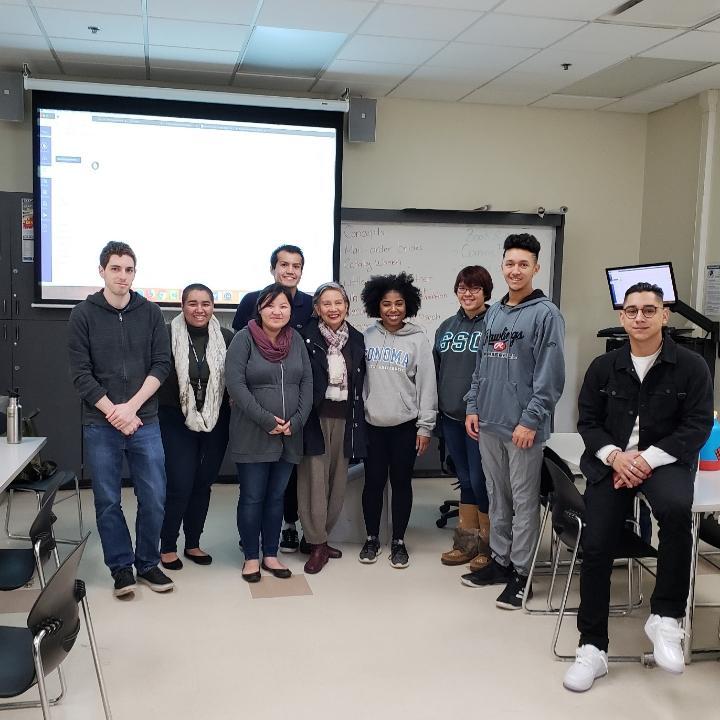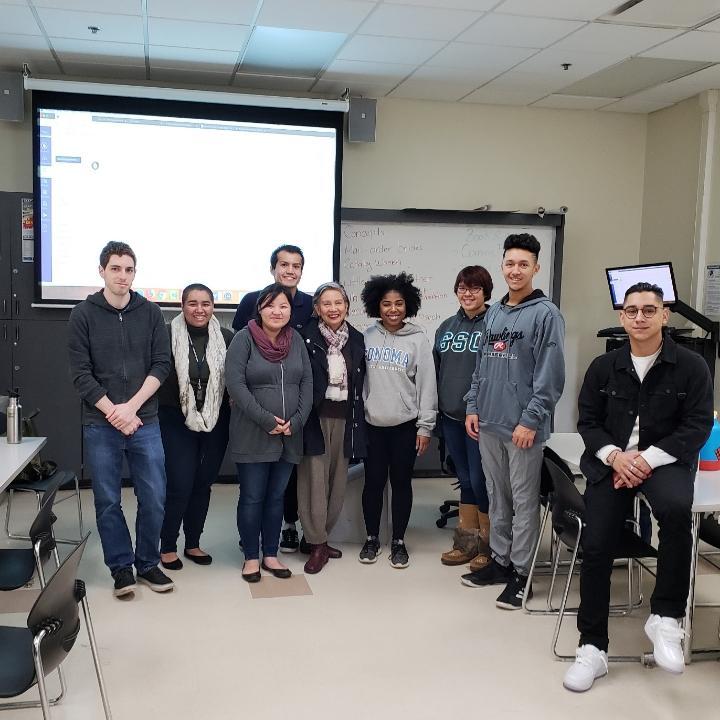Sonoma State University has a new student-run class in the American Multicultural Studies (AMCS) department. The class, Filipinos in the Diaspora, is run by 28-year-old Anthropology senior Charles Mikhail Zabala, and focuses on different aspects of Philippine history and Filipino-American history.
“Charles is passionate about the importance of teaching the stories and literature of the Filipino diaspora and I’m thrilled he’s teaching this class,” said Hollis Robbins, dean of Arts and Humanities.
Zabala is finishing his second bachelor’s degree and starts work on his master’s in the fall. He came to Sonoma State in 2017 after immigrating from the Philippines in 2009 where he was a chef with his own cooking show. He hopes to become a professor at Sonoma State.
“I’ve already built my community here,” Zabala said. “Sonoma State is still a baby in the CSU system and there are a lot of aspects I can be helpful in. When I started, the first thing I noticed was as a minority student there aren’t classes that talk about my history. That’s why I want to develop this program.”
The class, called Filipinos in Diaspora, is run by 28-year-old Charles Mikhail Zabala, a student at Sonoma State.
Zabala began to teach Filipinos in the Diaspora after being a teaching assistant for two sections of Freshman Experience. A retiring professor helped him prepare a proposal for the class that was later approved by the department chair. “It was intensive,” Zabala said. “It was a lot of reading. I had to re-learn Filipino history, Filipino-American history, and Filipino studies.”
For Zabala, teaching Filipinos in the Diaspora is a passion project. He receives no units and no pay. “I want to share with my students what I know,” he said. “I want to pay it forward.”
“There needs to be more visibility in ethnic studies and cultural communication, and more faculty members who are willing to work with students and help them develop what they’re passionate about,” Zabala said. “That’s what I love about my department.”
Cecily Diaz, a junior in American Multicultural Studies with a minor in Queer studies, is excited to be a student in Zabala’s class. Diaz is half Filipino and prefers gender-neutral pronouns. “Growing up I did not get an education in Filipino studies,” Diaz said.
Diaz met Zabala at a conference for indigenous wisdom and followed what he was doing. When Diaz discovered that Zabala was teaching this class, they felt it was an opportunity to pursue education on a more personal level.
The class studies the concept of “decolonization”, which refers to understanding ethnic cultures on a basis that is independent of the stories taught after colonization. “My goal is to decolonize myself on a deeper, spiritual level,” Diaz said.
Senior Shanté Markman, Anthropology major with a Paleontology minor, originally signed up for Zabala’s class because they are friends. However, she quickly found that, as a Native American, there were many aspects of the class that she identified with.
“As indigenous people we should stick together because we all have the same issues with colonizers,” she said. “We need to understand other indigenous people’s struggles.”
Markman didn’t know anything about the Philippines when she started the class, but she has come to love the mythology section the most. She said she enjoys the significance of monsters in mythology because they symbolize key issues, such as racism. She feels inspired by Zabala to think about teaching her own student-run class in Native American Studies.
“He does a really good job,” Markman said. “He’s excited about the material, and he really makes sure we understand the material before we move on.”





![[Both photos courtesy of sonoma.edu]
Ming-Ting Mike Lee stepped in as the new SSU president following Sakakis resignation in July 2022](https://sonomastatestar.com/wp-content/uploads/2024/04/CC4520AB-22A7-41B2-9F6F-2A2D5F76A28C-1200x1200.jpeg)



























